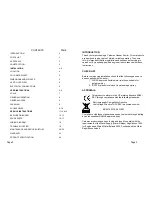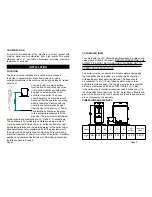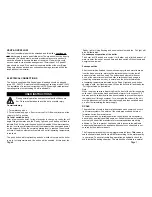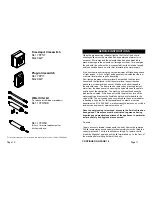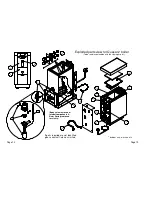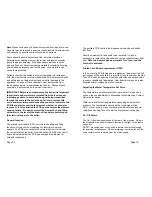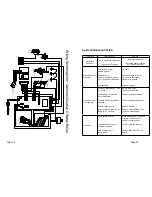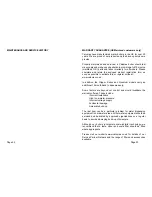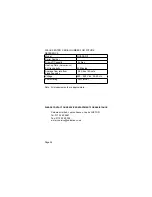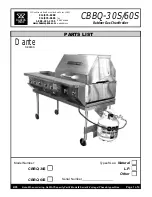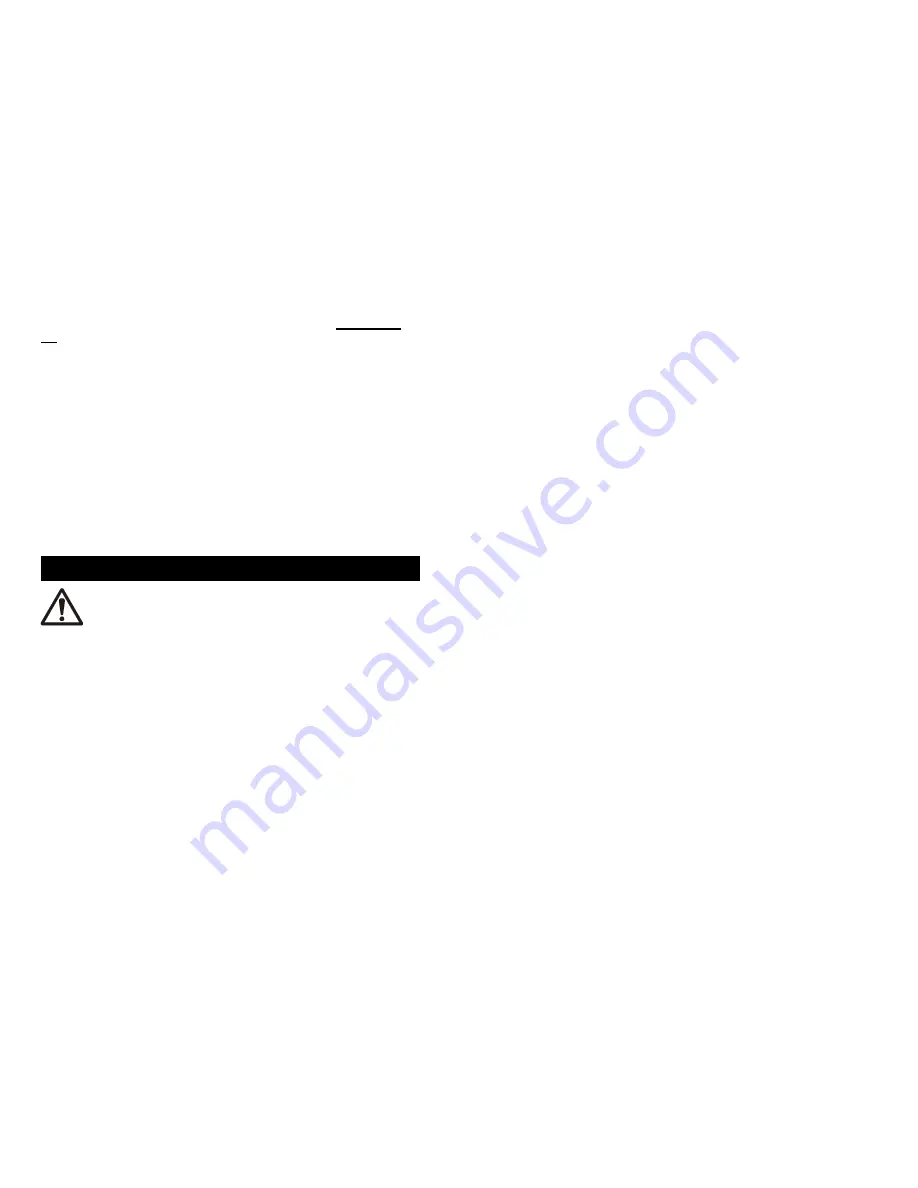
Page 6
Page 7
ELECTRICAL CONNECTIONS
The boiler is supplied with a fitted plug and lead and should be plugged
into a 220 - 240v 13A electrical socket, capable of carrying a load of 3kW.
The installation of a residual current device (RCD) having a rated residual
operating current not exceeding 30 mA is advisable
.
USER INSTRUCTIONS
During normal operation some external parts will become
hot. Care must be taken to avoid a burn or scald injury.
Commissioning
1. Turn water supply on
2. Turn electrical supply on. Ensure that the On / Off switch (located at the
rear) is in the On position
On initial switch-on only
After a few seconds delay for the electronics to charge up, the boiler will
begin filling with water and the ‘Ready’ light and push button will flash to
indicate ‘Wait’. At this point the push button is disabled. When water reaches
the low level sensor (element covered) the element will be energised as well
as the solenoid. When the normal operating level is reached the solenoid
will turn off and the element will remain on until full operating temperature
is reached.
The push button will stop flashing and show solid colour when the boiler
is up to full temperature and the button will be enabled. At this point the
VENT & OVERFLOW
The vent / overflow pipe must be extended and laid with a
continuous
fall
, discharging to a safe and visible point. The pipe should not be directly
connected to a closed waste, as taste problems may occur and should
never be allowed to become blocked or restricted. One way this could
be connected is via a tundish arrangement. 15mm copper or ‘Speedfit’
pipe should be used. If the machine is operated without the overfill pipe
being extended as advised, any subsequent damage incurred will be the
resposibility of the installer.
‘Ready’ light will stop flashing and show solid colour and the ‘Full’ light will
also be illuminated.
On subsequent operation of the boiler
The boiler will fill and heat in cycles. It will allow only a limited amount of
water to enter the unit at any one time and then switch off the solenoid and
energise the element.
Subsequent Use
After the boiler has finished the commissioning cycle and water is drawn
from the dispense valve, water will be replaced in short cycles (small
amount of water and then heat). The solenoid and element will never
be on at the same time unless the boiler is switched off and on again
(re-setting commission mode). In normal use the boiler will always be
at operating temperature indicated by the ‘Ready’ light and push button
showing a solid (not flashing) colour. When the boiler is full and ready the
‘Full’ light will also be illuminated.
Note:
When the green service indicator light on the front of the boiler is showing
solid colour, the machine has been starved of water for in excess of 20
minutes and the solenoid valve has been disabled to prevent damage to
the solenoid coil through overheat. To re-energise the solenoid, the unit
must be disconnected from the electrical supply and then switched back
on, after first reinstating the water supply.
SCALE
The production of scale is a natural phenomenon and commonly occurs
in hot water systems. The nature of the scale produced and its rate of
formation varies from area to area.
To ensure continuous, reliable operation, the boiler should be regularly
de-scaled by a suitably qualified engineer. Suitable chemical de-scalants
must only be used if the manufacturer’s recommendations are strictly
adhered to. This is to prevent health and safety issues, taste problems
and potential damage to the appliance. Misuse of such chemicals is not
covered by the product warranty.
The Quasar boiler benefits from an integral scale inhibitor.
This is not
a
scale eliminator and its effects will differ according to the water quality
in your area. To ensure trouble free operation, periodically check for
scale inside the boiling chamber. The production of scale is a natural


